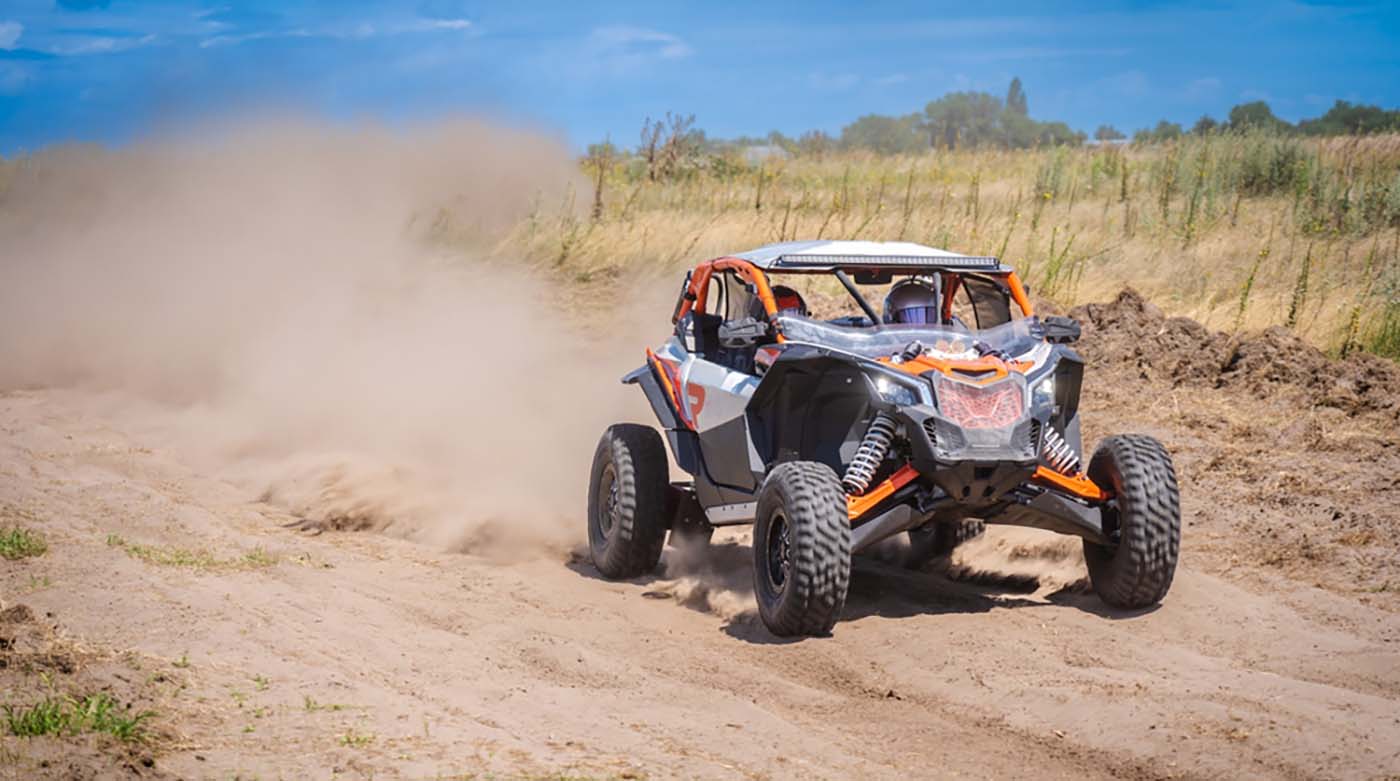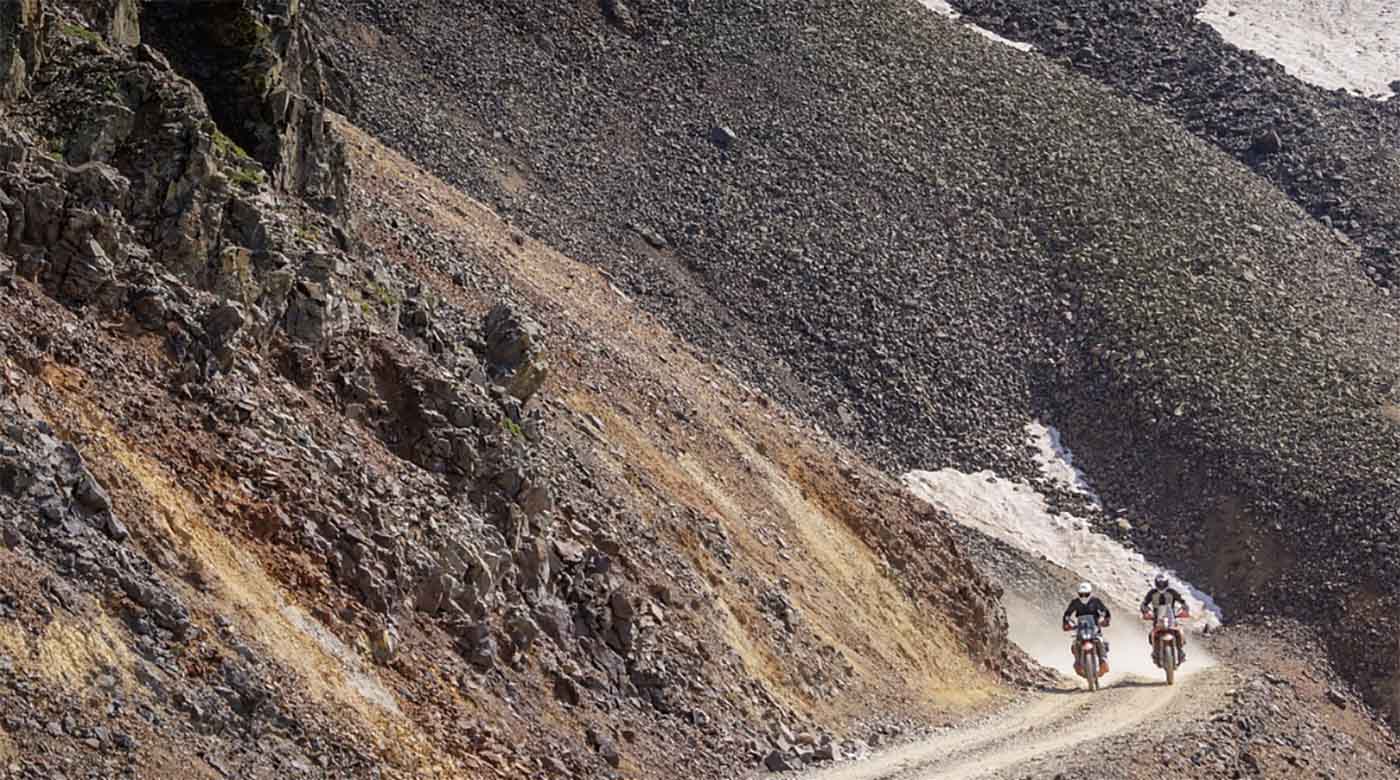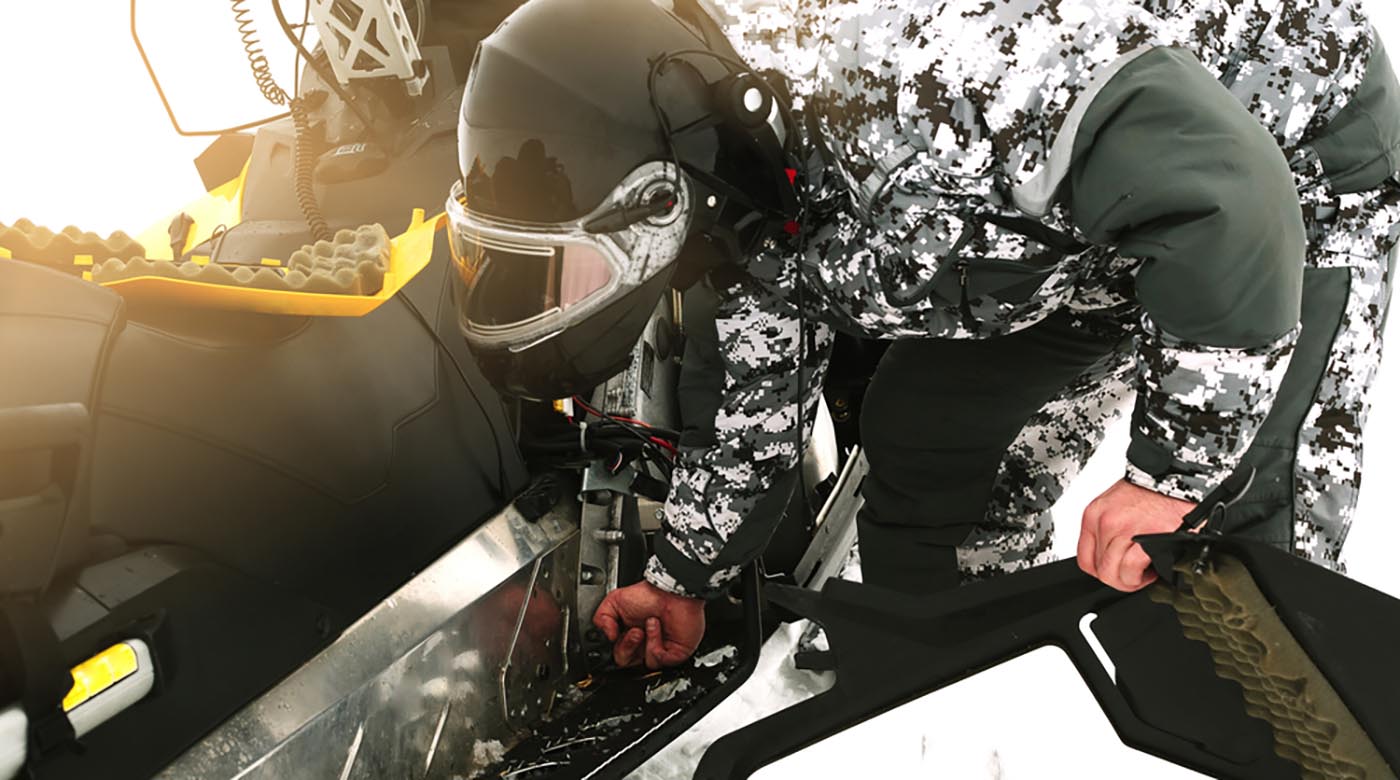Tolmachov Vision/shutterstock.com
Off-road vehicles know no bounds when exploring, but they have set mechanical limitations that diminish their lifespan. The elements can be harsh on UTVs, showering components with grime and debris. These hard-working vehicles can last five to ten years or more with proper maintenance. Creating a pre-ride checklist makes life easier when the season gets underway. Use these UTV maintenance tips to keep your ride on the trail as long as possible.
Ride Responsibly
Nothing affects your UTV’s condition like how and where you ride. Veering off course, taking sharp turns, and driving too fast increase the risk of accidents and expose the vehicle to more debris. Stay on the designated trail, limit turning speed to avoid rolling over or getting thrown, and avoid driving in hazardous environments with additional obstacles.
Wear safety gear, including gloves, pants, and long sleeves, to protect yourself from the elements. A helmet reduces your risk of serious injury during turbulence. Wear goggles if you don’t have a windshield to see the trail clearly.
Use a wireless UTV communication system to talk to your passengers or other off-road vehicles hands-free. The headsets link automatically and don’t need to be adjusted while riding. You can connect up to 15 units directly using Dynamic Mesh Communication (DMC), so you won’t get disconnected when changing formation.
Anyone not wearing a helmet can use the Cardo Packtalk Edgephones to join the conversation. They fit comfortably over the ears to provide natural-sounding audio and are perfect for passengers and drivers of enclosed vehicles.

Suvorov_Alex/shutterstock.com
Communicate Hands-Free on the Trail with Off-Road HeadsetsCheck and Replace Engine Fluids
The engine needs a steady supply of clean oil to run. Use a dipstick to check for discoloration and debris in the oil supply. Change the oil if it’s dirty or every 1,000 miles, six months, or more when driving through challenging terrain. Fully synthetic oil is the best choice for off-road vehicles. It’s better suited to enduring drastic temperature changes and high RPMs than natural or semi-synthetic oil.
Check the fuel tank for grime and debris. Avoid using fuel that’s been sitting out in the cold. Water separation in the fuel tank can spread rust.
Transmission fluid doesn’t need to be changed as often as the oil, usually once a year, but it can still become contaminated with dirt. Replace the fluid when it appears dirty.
Check the Cooling System
Replace and flush the anti-freeze as it gets dirty, usually every five years. Inspect the radiator cap for damage and ensure it seals properly. Excess heat will damage the engine and reduce its lifespan. Off-road vehicles already run hot and need regular coolant to prevent overheating. Keep your nose out for burning smells and residue around the radiator when the engine expels excess heat.
Lubricate Metal Parts
Metal parts that grind against each other will degrade with proper lubrication. Use a grease gun to lubricate the suspension and fittings for a smoother ride. Inspect all exposed areas for rust and oxidation. Retighten bolts and lugs and replace any that may have come loose.
Inspect Tire Pressure and Treads
Go over the tires with a wire brush to remove debris stuck between the treads. Replace your tires if they have holes, cracks, or worn treads. Check and adjust the PSI levels according to the manufacturer’s recommendations before and throughout each trip. Rigid terrain requires a higher PSI to improve puncture resistance. Soft terrain, like moist dirt, sand, and mud, needs a lower PSI to improve traction and maximize surface contact.

Ahmad Azhar/shutterstock.com
Tailor UTV Maintenance to Your Vehicle
Not all off-road vehicles experience the same wear and tear. Every make/model also requires unique specifications that can affect the repairs. Learn the UTV vs ATV difference and what it means for your vehicle. Adjust your routine based on the terrain and what kinds of issues your ride is known to encounter.
Driving through rivers, mud, and bogs can lead to water damage. Be careful not to submerge the exhaust system. Gravel and rock gardens can cause dents and collisions, leading to leaks and structural damage. Check fluid levels and the undercarriage often for impacts.
Make UTV Maintenance Work for You
Leaving the road behind generally requires more maintenance. UTV engines work hard to push through uneven terrain and need constant care and attention to do their jobs efficiently. Work these tips into your daily routine to prevent your vehicle from breaking down sooner than it should.





